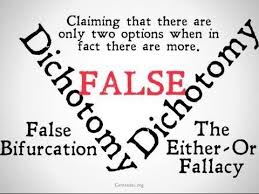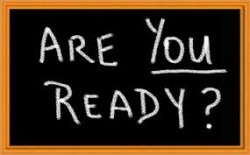by Erica L. Meltzer | Nov 2, 2015 | Blog, The New SAT
Dear College Board:
I understand that you are very busy helping students prepare for college and career readiness success in the 21st century; however, as I was perusing (excuse me, looking at) the section of your website devoted to describing the essay contest run jointly by your organization and The Atlantic magazine, I couldn’t help but notice a sentence that read as follows:
“To be successful at analytical writing, students must support your arguments with evidence found in the text and clearly convey information to the reader.”
As the writers of your website copy presumably know, the correct use of parallel structure and pronoun agreement is an important component of analytical writing — the exact type of writing that employees use authentically in their actual careers.
Moreover, given that your organization is responsible for testing over 1.5 million students on these exact concepts annually, I assume that the appearance of this type of faulty construction is simply the result of an oversight rather than any sort of indication that College Board writers lack the skills and knowledge necessary for success in the 21st century — that is, the skills and knowledge that matter most.
As you update your website to reflect the upcoming changes to the SAT, however, do try to remember that carefully editing your work is also an important skill for college and career readiness. After all, you wouldn’t want to set a poor example.
Best,
Erica

by Erica L. Meltzer | Sep 19, 2015 | Blog, Issues in Education
On the surface, everyone’s favorite buzzword certainly seems unobjectionable enough. In addition to being short, snappy, and alliterative (all good qualities in a buzzword), who could possibly argue that high school students shouldn’t be prepared for college and careers? When you consider the slogan a bit more closely, however, it starts to make a little less sense.
First and most obviously, the American higher education system is staggeringly diverse, encompassing everything from for-profit trade schools to community colleges to state flagship institutions to the Ivy League. While it seems reasonable to assume that there is a baseline skills that all (or most) students should be expected to graduate from high school, a one-size-fits-all approach makes absolutely no sense when it comes to college admissions.
Does anyone seriously think that a student who wants to study accounting at a local community college and one who wants to study physics at MIT should come out of high school knowing the same things? Or that a student who wants to study communications through an online, for-profit college and a student who wants to study philosophy at Princeton should be expected to read at the same level? A student receiving straight A’s at one institution could easily need substantial remediation to even earn a passing grade at the other. Viewed this way, the definition of “college readiness” as “knowledge and skills in English and mathematics necessary to qualify for and succeed in entry-level, credit-bearing post-secondary coursework without the need for remediation” is effectively meaningless.
Second, let’s consider the “career readiness” part. Perhaps this was less true when the slogan was originally coined (by the ACT…I think), but today it is more or less impossible to obtain even the lowest-level white collar position without a college diploma. Virtually anyone entering the job market immediately after high school will almost certainly be considered only for service jobs (flipping burgers, stocking shelves at Walmart) or manual labor. While these jobs do require basic literacy and numeracy skills, they are light years away from those required by even a relatively un-challenging college program. It makes no sense to group them with post-secondary education.
Third, the pairing of “college and career” is more than a little problematic. While there are obviously some skills that translate well in both the classroom and in the boardroom (writing clearly and grammatically, organizing one’s thoughts in a logical manner, considering multiple viewpoints), there are other ways in which the skills valued in the classroom (searching for complexity, “problematizing” seemingly straightforward ideas) are exactly the opposite of those usually prized in the working world. They are enormously valuable skills, but on their own merits. It really only makes sense to lump college and work together in this way if you are attempting to redefine college as quasi-trade school for the tech industry.
Like most people, though, I assumed that the “college” part was intended refer to traditional, four-year institutions. Then, while reading one of the white papers released by Ze’ev Wurman and Sandra Stotsky (one of the writers of the 1998 Massachusetts ELA standards, considered the most rigorous in the country, and one of only two members of the Common Core validation committee to refuse to sign off on the standards), I came across this edifying tidbit:
The clearest statement of the meaning of [college and career readiness] that we have found appears in the minutes of the March 23 meeting of the Massachusetts Board of Elementary and Secondary Education. Jason Zimba, a member of the mathematics draft-writing team who had been invited to speak to the Board, stated, in response to a query, that “the concept of college readiness is minimal and focuses on non- selective colleges.” Earlier, Cynthia Schmeiser, president and CEO of ACT’s Education Division, one of Common Core’s key partners, testified to a U.S. Senate Committee that college readiness was aimed at such post-secondary institutions as “two- or four-year colleges, trade schools, or technical schools.” These candid comments raise professional and ethical issues. The concept is apparently little more than a euphemism for “minimum competencies,” the concept that guided standards and tests in the 1980s, with little success in increasing the academic achievement of low-performing students…
Moreover, it seems that this meaning for college readiness was intended only for low-achieving high school students who are to be encouraged to seek enrollment in non-selective post-secondary institutions. Despite its low academic goals and limited target, this meaning for college readiness was generalized as the academic goal for all students and offered to the public without explanation. (Stotsky and Wurman, “The Emperor’s New Clothes: National Assessments Based on Weak “College and Career Readiness Standards,” 2010.)
Stotsky goes on to point out that not a single detail from the very explicit standards laid out in the 2003 report “Understanding University Success” — a report that included input from 400 faculty members from 20 institutions, including Harvard, MIT, and the University of Virginia — was included in the Common Core Standards.
In contrast, Common Core standards were primarily written by 24 people, many of whom were affiliated with the testing industry, and some of whom had no teaching experience whatsoever. As Mercedes Schneider points out, Jason Zimba, the lead writer of the math standards:
…acknowledge[d] that ending with the Common Core in high school could preclude students from attending elite colleges. In many cases, the Core is not aligned with the expectations at the collegiate level. “If you want to take calculus your freshman year in college, you will need to take more mathematics than is in the Common Core.”
Likewise, I would add that analytical skills a tad more sophisticated than simply comparing and contrasting, or using evidence to support one’s arguments, are a prerequisite for doing any sort of serious university-level work in the humanities or social sciences. As is vocabulary beyond the level of synthesize and hypothesis.
Food for thought, the next time you hear/see Common Core described as a set of “more rigorous” (hah!) standards designed to prepare students for colleges and the workforce.”
Cynthia Schmeiser, incidentally, now works for the College Board. It’s amazing how, when you do a little prodding (or, should I say, “delve deep,” to invoke another preferred euphemism), the same names keep cropping up over and over again…
by Erica L. Meltzer | Sep 7, 2015 | Blog
From Bloomberg:
Students in the high school class of 2015 turned in the lowest critical reading score on the SAT college entrance exam in more than 40 years, with all three sections declining from the previous year. Meanwhile, ACT Inc. reported that nearly 60 percent of all 2015 high school graduates took the ACT, up from 49 percent in 2011. (https://www.bloomberg.com/news/articles/2015-09-03/students-bombed-the-sat-this-year-in-four-charts)


Oh well, good thing the new SAT is right around the corner. Without all those obscure words and irrelevant passages, scores should start to artificially increase stabilize.

by Erica L. Meltzer | Aug 28, 2015 | Blog, Issues in Education
But claiming that there is apparently makes for a good headline.
Knowledge and skills are intertwined; unless schools start acknowledging that critical thinking can only result from detailed content knowledge, conversations about what’s ailing American education will continue to be an exercise in nonsense.
The fact that anyone can use the phrase “knowledge-based learning” in a non-ironic way creeps me out to no end.
What’s next? Word-based reading? Number-based math? Language-based speech?
I don’t believe Common Core is really going to change many things here. It’s a set of skills; it does not lay out a coherent, specific body of knowledge. The ELA standards, at least, are so vague and repetitive as to be virtually meaningless, and would be met automatically in any rigorous traditional classroom headed by a knowledgeable, well-trained teacher.
If school districts use CC to implement a more content-rich curriculum, that is their choice. Requiring students to learn any particular set of facts, no matter how anodyne, is so politically contentious that no one would dare attempt such a thing at the national level.
Writing in the New York Times, Natalie Wexler acknowledges that:
…engineering the switch from skills to knowledge will take real effort. Schools will need to develop coherent curriculums and adopt different ways of training teachers and evaluating progress. Because the federal government can’t simply mandate a focus on knowledge, change will need to occur piecemeal, at the state, school district or individual school level.
To believe that such a change could miraculously occur “piecemeal” goes far beyond wishful thinking and into the realm of pure fantasy. And no, the fact that a bunch of people have downloaded a free online curriculum isn’t exactly going to compensate. Poor scores on CC tests are unlikely to simply “incentivize” low-income schools to shift over to a stronger emphasis on subject content, especially if their curriculums are effectively centered around test-prep. Besides, doing things in such a haphazard fashion is a pretty great way to ensure that huge disparities (geographic, economic, etc.) continue to exist.
When you take a crop of teachers indoctrinated by ed schools to believe that lecturing and memorization are forms of child abuse; pair them with administrators who use the threat of poor evaluations to keep less progressive teachers in line; and mix in an obsession with testing and accountability, you end up with a chaotic system driven by quick fixes. (But hey, no worries, the market will sort it out, right?)
In order for the focus to shift more towards teaching content, you need a critical mass of people who believe that subject knowledge is the basis for critical thinking, both in the classroom and in the administrative offices. Right now, those people are in pretty short supply. And with the number of people entering teaching dwindling, the chance of getting highly educated/knowledgeable/competent teachers, who believe even partially in the importance of transmitting knowledge, in front of classrooms on any sort of wide scale in the near future is pretty small.
The Right isn’t exactly helping here either. Rather than embrace what would actually be a conservative concept of education (classical curriculum, back-to-basics, etc.), they’re too busy screaming about school choice and privatizing everything.
It’s a perfect storm of factors, and while everyone is busy setting up false dichotomies and waiting for technology to save the day, the descent into chaos continues.
I think a commenter named Emile from NY said it best:
I don’t know in depth the various pedagogical theories about K-12 education, but from the perspective of a college professor who’s been teaching at a mid-tier university for more than 25 years, K-12 education has been in a steady decline over the past few decades, and [E.D.] Hirsch is absolutely right about the reason for it.
I ask everyone in K-12 education this: What should a college professor who is teaching a course on Enlightenment ideas do in the face of a whole class of intelligent freshmen who don’t know the dates of the Civil War, or the Second World War, or the French Revolution, or know that once upon a time there was a Roman Empire? How, exactly, would you proceed? Or how, exactly, would you proceed in a basic college course in mathematics when faced with a college class of intelligent freshmen that can’t, as a whole, move easily between fractions, decimals and percents?
People hate the word “memorization,” but I’m here to tell you students love it. People who malign memorization often ask, “Why should anyone memorize dates that they’re bound to forget?” Not every date is remembered over the long haul, but the mind loves inductive reasoning, and has a way of gathering particular dates loosely into centuries, and from there building a kind of organized closet into which more knowledge can be added.
I’m not suggesting that first graders need to be able to able to discourse in detail about ancient Mesopotamia, but seriously, is it that unreasonable for college students to be expected to have a basic understanding of what happened in the past?

by Erica L. Meltzer | Aug 16, 2015 | Blog, SAT Essay
I’ve been saying half-jokingly for a while that the AP English Language test should take a cue from the AP language tests and include an essay that requires students to compose a formal email.
Granted, this type of assignment might seem a tad simplistic for the AP exam; however, given the redesigned SAT’s purported emphasis on “the skills that matter most,” why not test one of the skills that does incontrovertibly matter most in the hyper-competitive knowledge-based twenty first century economy?
As I wrote about the other day, in light of some of the emails I’ve received, I actually think that this would be a rather challenging assignment for many high school students. Among other things, it would not only require correct grammar and diction (points off for all lower-case!) but also use of a formal register.
And come on, how often in the real world do people really get asked to write an essay analyzing how an author builds an argument? Not very often, I should think — especially if they’re busy inventing the next great app for something that will truly benefit society, like faster pizza delivery.
And since liberal arts education is being dismantled anyway, why not simply do away with the pretense that it matters and test students on a skill that might actually help them land a job?
The assignment would go something like this (adapted from the French AP):
You will reply to an email message. You have 15 minutes to read the prompt and write your response.
Your response should include a greeting and a closing and should respond to all the questions and requests in the message. In your reply, you should also ask for more details about something mentioned in the message. Also, you should use a formal form of address. (Apparently, the people who write the directions for the AP exams never learned that you’re not supposed to start a sentence with “also.”)
Introduction
This is a message from Jane Smith, who directs a program that places high school students in internships with local businesses. You are receiving this message because you have indicated your interest in this program. The message is being sent to find out more about your interests and qualifications.
From: Jane Smith
To: Internship applicants
Dear Applicants,
We are excited to learn of your interest in participating in our program! For the last 10 years, we have offered high school students the chance to hone their career readiness skills for success in the twenty-first century economy. In order to determine whether you are a good fit for our program, we ask you to provide some additional information.
What attracts you to our program, how do you believe you will benefit from it, and what sorts of skills could you bring to a twenty-first century workplace?
What is your schedule: are you available on weekdays and/or weekends? How many hours can you work each day, and do you have any flexibility?
Which sectors appeal to you most, and why do they appeal to you?
We eagerly await your response.
Sincerely,
Jane Smith




